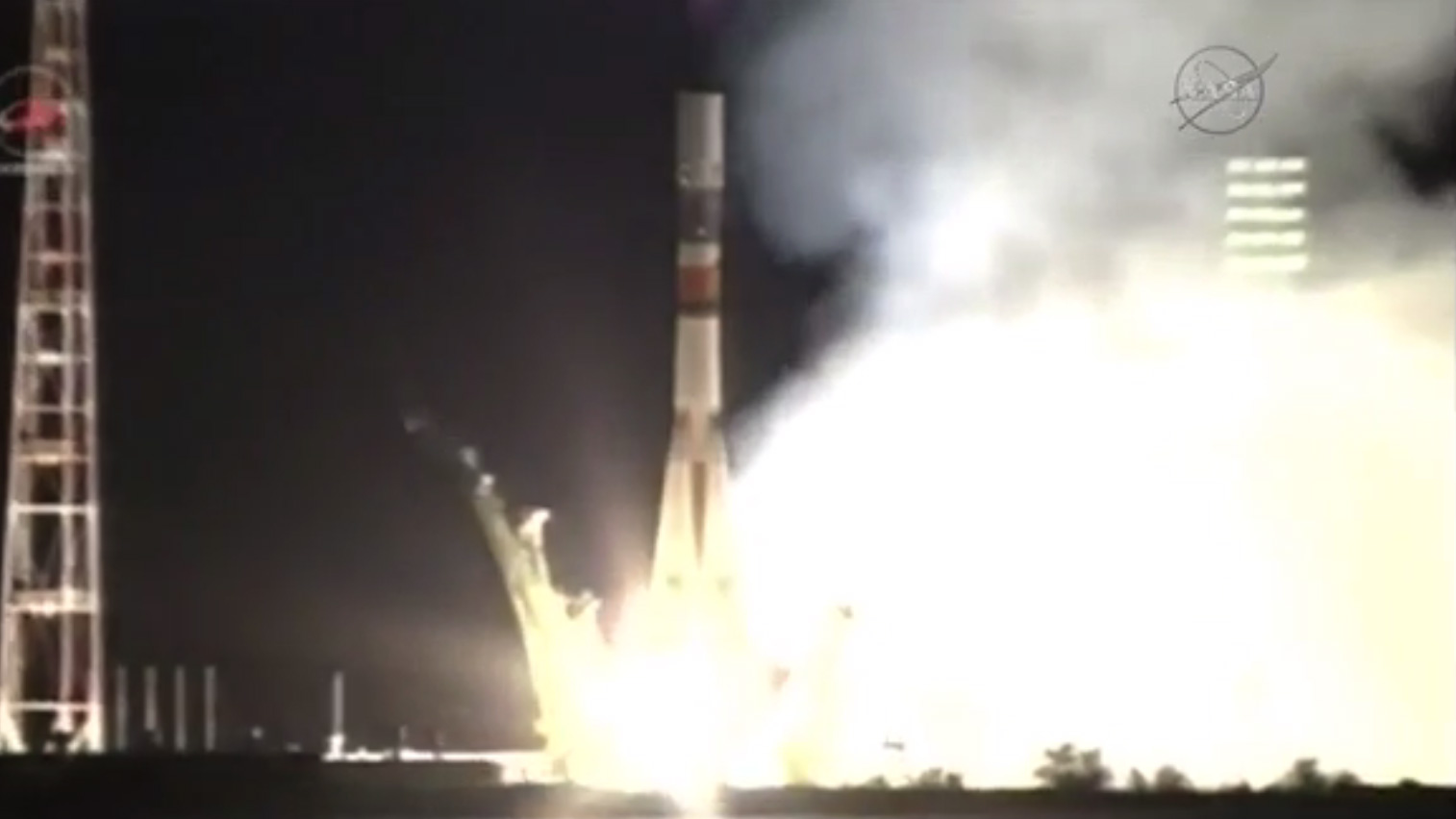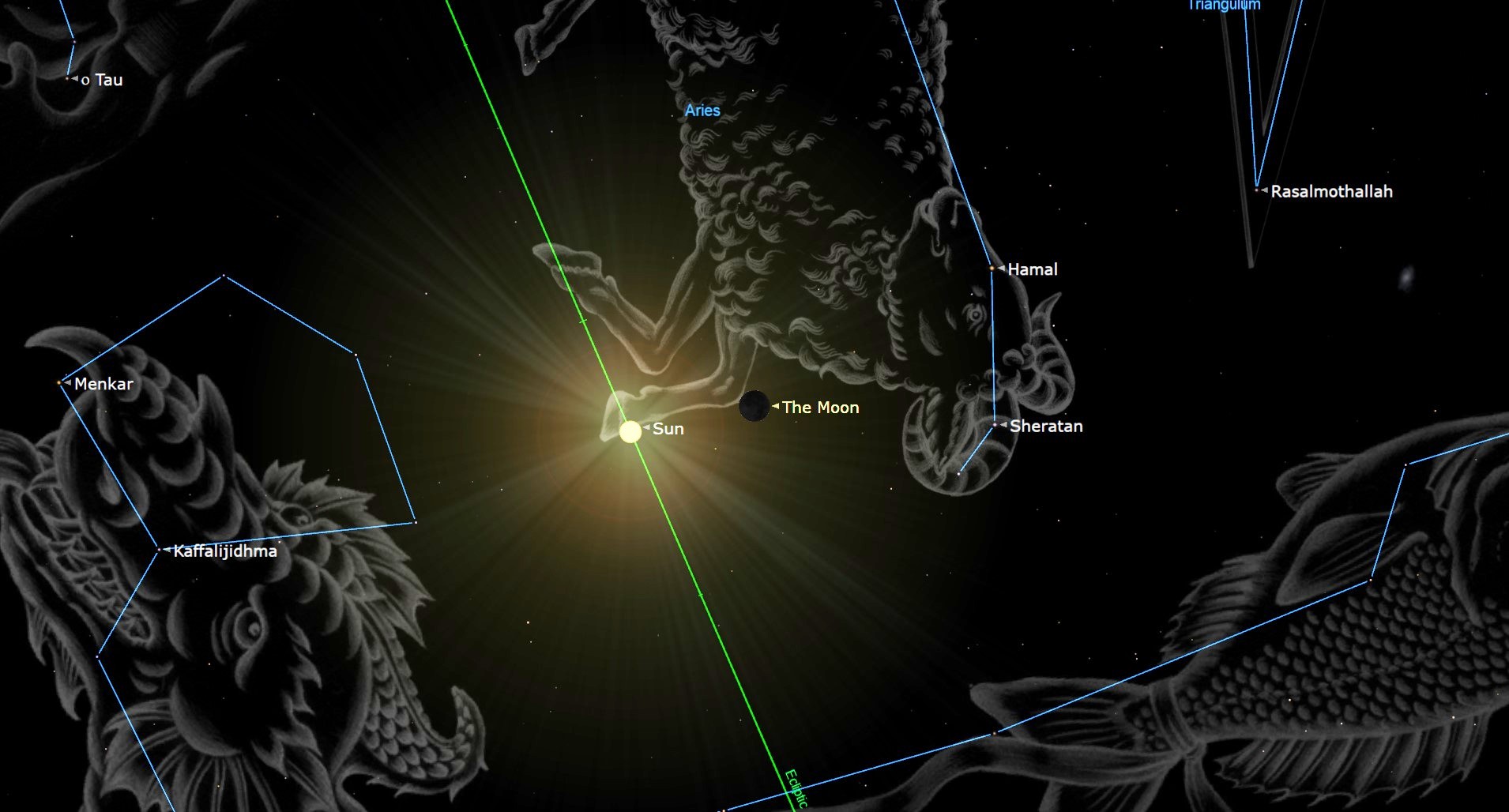Russia Launches Progress Cargo Ship on Fast Trip to Space Station

Russia launched an unmanned cargo ship Thursday (Oct. 1) on a speedy mission to deliver tons of fresh supplies to a waiting crew on the International Space Station.
The cargo ship, called Progress 61, blasted off atop a Russian Soyuz rocket at 12:49 p.m. EDT (1649 GMT) from the Baikonur Cosmodrome in Kazakhstan, where it was late Thursday night local time. If all goes well, the spacecraft will spend six hours in flight, orbiting Earth four times as it chases the space station.
"A flawless climb to orbit for the newest resupply craft en route to the International Space Station," NASA spokesman Rob Navias said during his launch commentary. [Watch Progress 61 Launch Into Space]
The Progress 61 spacecraft (also known as 61P) is carrying 3.1 tons of supplies for the six-man crew of the International Space Station. The freighter will arrive at the station at 6:54 p.m. EDT (2254 GMT). You can watch the space docking live on Space.com, courtesy of NASA TV, beginning at 6:15 p.m. EDT (2215 GMT).
Russia's Progress spacecraft are three-module cargo ships that are similar in appearance to Russia's Soyuz crew capsules. But in place of a crew capsule, Progress vehicles carry propellant for use in maneuvering the space station. Progress vehicles are also disposable, with Progress 61 slated to be discarded in December so it can burn up in Earth's atmosphere.
The International Space Station relies on a fleet of robotic spacecraft to keep its crew fully stocked with supplies. In addition to Russian Progress vehicles, unmanned spacecraft from Japan and Europe have delivered goods to the station. A Japanese HTV-5 cargo ship left the space station on Monday (Sept. 28) after completing its mission.
NASA also has agreements with two private U.S. companies, SpaceX and Orbital ATK, for unmanned cargo delivery flights.
Get the Space.com Newsletter
Breaking space news, the latest updates on rocket launches, skywatching events and more!
SpaceX and Orbital ATK are currently working to return their rockets and spacecraft to flight after separate failures.
On June 28, an unmanned SpaceX Falcon 9 rocket broke apart during the launch of its Dragon cargo ship. SpaceX officials have cited a faulty strut as the cause of the failure. In October 2014, an Orbital Antares rocket exploded just after liftoff, destroying its robotic Cygnus spacecraft.
Earlier this year, on April 28, a Russian Progress 59 spacecraft failed to reach the space station due to a malfunction just after launch. A subsequent Progress 60 launch in July successfully flew to the space station.
Email Tariq Malik at tmalik@space.com or follow him @tariqjmalik and Google+. Follow us @Spacedotcom, Facebook and Google+. Original article on Space.com.
Join our Space Forums to keep talking space on the latest missions, night sky and more! And if you have a news tip, correction or comment, let us know at: community@space.com.

Tariq is the Editor-in-Chief of Space.com and joined the team in 2001, first as an intern and staff writer, and later as an editor. He covers human spaceflight, exploration and space science, as well as skywatching and entertainment. He became Space.com's Managing Editor in 2009 and Editor-in-Chief in 2019. Before joining Space.com, Tariq was a staff reporter for The Los Angeles Times covering education and city beats in La Habra, Fullerton and Huntington Beach. In October 2022, Tariq received the Harry Kolcum Award for excellence in space reporting from the National Space Club Florida Committee. He is also an Eagle Scout (yes, he has the Space Exploration merit badge) and went to Space Camp four times as a kid and a fifth time as an adult. He has journalism degrees from the University of Southern California and New York University. You can find Tariq at Space.com and as the co-host to the This Week In Space podcast with space historian Rod Pyle on the TWiT network. To see his latest project, you can follow Tariq on Twitter @tariqjmalik.









